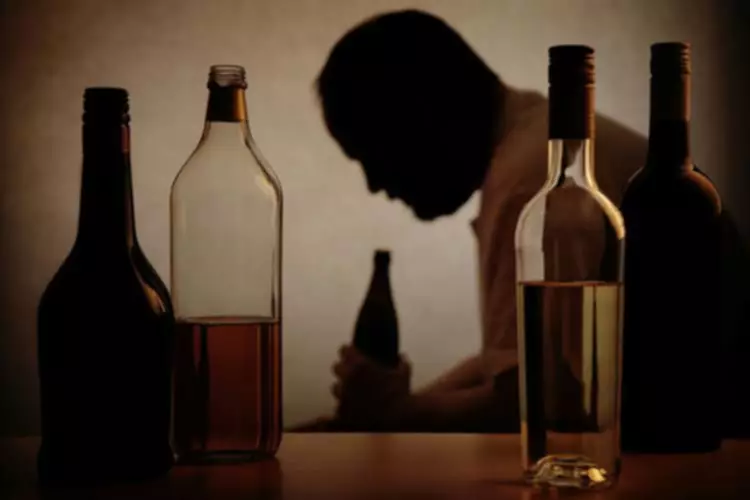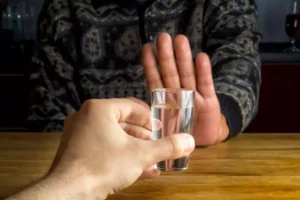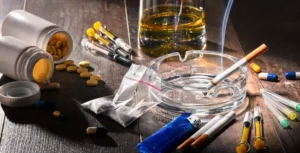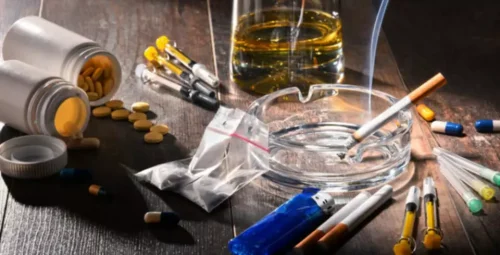Dry Drunk Syndrome: Definition, Symptoms and How to Cope

Having a co-occurring disorder can exacerbate each diagnosis and make it harder to treat. Finding an integrative treatment program that addresses both disorders at once can help address your mental health condition while supporting your recovery. Many people report, and healthcare providers observe, symptoms of withdrawal beyond the acute withdrawal timeframe. However, there is limited research on protracted withdrawal, and it is not yet included in the Diagnostic and Statistical Manual of Mental Disorders. Dry drunk syndrome can occur at any time during recovery but most commonly occurs in early recovery. In some individuals, dry drunk symptoms are most common in the days and weeks immediately after beginning recovery.
- As these feelings grow, they can lead to a mindset of separation from others, feeling misunderstood or isolated.
- This can allow you to treat the symptoms of your mental health disorder without turning to alcohol or drugs.
- Addiction is often a symptom of deeper emotional or psychological issues.
- If these underlying issues haven’t been addressed in therapy or support groups, they can continue to fuel negative emotions and unhealthy behaviors.
Unresolved Emotional Issues

If you have quit drinking alcohol but still struggle with the same behavior patterns as during addiction, you’re not alone. HBO’s Addiction Project postulates that addicts only fully recover after four to five years of support after the initial sobriety period. For some addicts, especially those who opt out of follow-up treatment after becoming sober, the emotional and psychological issues that accompanied their addiction can remain. Like other mental health challenges, dry drunk syndrome is best addressed through a combination of individual and group therapy, peer support, and behavioral and lifestyle changes. If your loved one is already enrolled in a professional treatment program, make sure to communicate your concerns to the program staff.
Dry Drunk Syndrome Symptoms
If the symptoms of dry drunk syndrome are related to post-acute withdrawal syndrome2, this can last for weeks or months. These protracted or prolonged withdrawal symptoms are similar to mood disorders. Around 75% of people2 recovering from an alcohol use disorder may experience PAWS symptoms. Medications, behavioral therapies, and treatment for co-occurring disorders can help someone deal with the symptoms of PAWS. Understanding and overcoming dry drunk syndrome is an essential part of your recovery process.
Symptoms of Dry Drunk Syndrome (Protracted Withdrawal)
- ‘Dry drunk syndrome’ is a stigmatizing term no longer used in the field of substance use treatment.
- Amanda Stevens is a highly respected figure in the field of medical content writing, with a specific focus on eating disorders and addiction treatment.
- Abstaining from alcohol and going through detox allows the body to overcome some physical side effects of addiction, such as cravings and withdrawal symptoms.
- In fact, an estimated 75 percent of individuals in recovery from alcohol addiction may experience the condition at some point, according to the UCLA Semel Institute for Neuroscience and Human Behavior.
It could also be a dry drunk codependent relationship, where you feel a sense of guilt or responsibility toward the person. Believing that simply quitting alcohol is enough can lead to stagnation in your recovery journey. Active participation in recovery activities is essential for long-term success. Engaging in recovery without a support system can leave you vulnerable to negative thought patterns and behaviors. If you have not dealt with the emotional pain, trauma, or stressors that led to your alcohol use, you may find yourself struggling with dry drunk syndrome.
Yet, long-term recovery and a fulfilling life in sobriety are possible with the right resources and support. There might be resentment because they could see their family or loved ones as having “forced” them to stop drinking. They may be frustrated at realizing they can’t drink as other people do, or they could struggle to take responsibility for the years they spent drinking.

After all, recovery is not just about the absence of drugs and alcohol. The true purpose of recovery is to demonstrate a willingness to break away from a pattern of destructive and dangerous behavior and establish a new lifestyle set on a foundation of respect. Addicted individuals who are not fully committed to their recovery will not be able to fully manage these aspects of their journey ahead. These types of people think that once they stop using or drinking, their life will become restored and all their relationships will improve as a result.

If you or a loved one is experiencing dry drunk syndrome, it does not mean there is a relapse about to occur. A relapse is when someone has stopped drinking and starts drinking again. However, struggling with protracted withdrawal or dry drunk syndrome symptoms can be an added struggle to staying sober. If dry drunk syndrome you are struggling with extended withdrawal symptoms, you should reach out to your healthcare provider for extra support and treatment referrals. If you or a loved one is struggling with dry drunk behaviors, seeking professional help and support from a healthcare provider or addiction treatment center is essential.
- If you or a loved one is struggling with dry drunk behaviors, seeking professional help and support from a healthcare provider or addiction treatment center is essential.
- They may refer to these people as high-risk patients because they have a high risk of relapse into alcoholism.
It’s important to work with your loved one’s treatment provider to watch for the warning signs of relapse. Calling people dry drunks after they become sober can make them feel like they’re still as alienated as they were before they quit drinking. Instead of using words that condemn them, we can use words that encourage them to continue the path to recovery. Some people require formal therapy from a rehab center or outpatient therapist to overcome dry Sober living house drunk syndrome and find motivation to change their behaviors. Others can benefit from self-help programs, such as Alcoholics Anonymous or SMART Recovery. Moreover, post-acute withdrawal symptoms (PAWS) caused by dry drunk syndrome may linger much longer than expected.


Other, more dangerous outcomes can also occur during withdrawal, including delirium tremens, a brain condition that can lead to coma or death. It doesn’t matter what time it is, Discovery Place is here and ready to help those impacted by addiction day or night. Whether it is 3 AM or 3 PM, you can start your recovery journey by reaching out to our rehab in the Nashville area. It’s crucial to manage these feelings by setting realistic expectations and understanding that healing and achieving life goals take time. Ongoing self-improvement and addressing the root causes of dissatisfaction can help bridge the gap between expectation and reality.
- If the symptoms of dry drunk syndrome are related to post-acute withdrawal syndrome2, this can last for weeks or months.
- Recognizing these symptoms is crucial, as they can hinder your recovery process and increase the risk of returning to alcohol use.
- Both perspectives serve to distance the individual from those around them, suggesting that they are different and that normal rules don’t apply.
- Dry drunk syndrome can occur at any time during recovery but most commonly occurs in early recovery.
- Someone can be sober, meaning they aren’t using drugs or alcohol, but they might not have fully dealt with the underlying contributors to the original alcohol use disorder.
- We also help them understand that staying sober and living in recovery means a lot more than just staying away from the bottle.
Acknowledge Your Feelings
Journaling or discussing your feelings with a therapist or support group can help you find emotional support. Recovery from an alcohol use disorder means more than quitting alcohol. Even after you no longer crave alcohol, you need to deal with the psychological and behavioral issues that contributed to your addiction in order to prevent relapse. Dry drunk syndrome is part of the phenomenon known as post-acute withdrawal syndrome (PAWS). When a heavy drinker quits drinking, their brain must adjust to the chemical damage that alcohol has caused.

